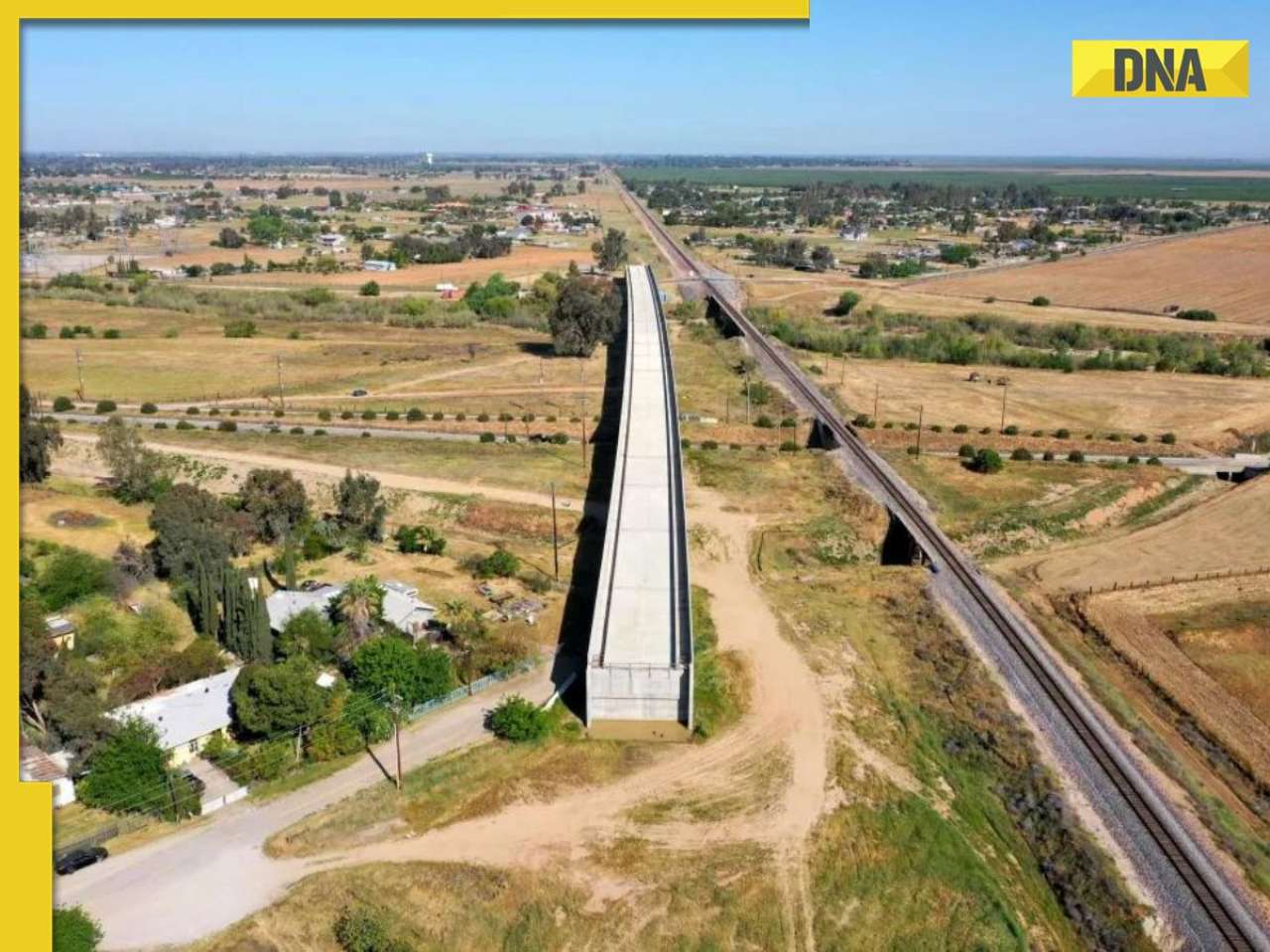However, the fate of the shares in Air India that Jinnah had acquired remains unclear. Speculation suggests that he may not have had the opportunity to sell these shares, as his commitments intensified upon relocating to Pakistan.
Pakistan's founding father Mohammad Ali Jinnah was notably meticulous when it came to financial matters and he strategically invested his funds in shares across various companies in the country. Prior to Independence, it's believed that he swiftly transferred a substantial portion of his wealth to Pakistan ensuring that not a single rupee of his fortune remained in India.
He took the proactive step of closing his bank account in Mumbai and withdrew all his funds, exhibiting a profound vigilance regarding investments and property management.
In the days leading up to Independence, he even purchased shares in Air India.
Amid the negotiations between Congress and the Muslim League regarding the partition agreement in March 1947, Jinnah remained vigilant about investment opportunities. In March, he penned letters to select brokers, acquiring 500 shares of Air India Limited. However, discerning his exact intentions behind such investments proves challenging. Detailed accounts of Jinnah's financial trends are extensively delineated in the Quaid-I-Azam Mohammad Ali Jinnah Papers Pakistan: Struggling for Survival 1 January-30 September 1948, a project by the Government of Pakistan.
Jinnah also contemplated selling his Mumbai residence, Jinnah House. Despite its market value of Rs 5 lakh, he encountered difficulty in finding a buyer, eventually altering his plans. Perhaps he harbored the desire to retain a foothold in India and occasionally visit. However, he notably sold his grand bungalow in Delhi's Lutyens Zone to the distinguished industrialist Ramkrishna Dalmia for Rs 05 lakh.
Known for his legal acumen, Jinnah's investment pursuits are revealed in papers authored by JH Jaidi. Undoubtedly, Jinnah commanded substantial legal fees. During that era, the British held only two lawyers in India in high regard: Jinnah himself and Tej Sapru, both of whom had pursued barrister studies in London.
Conversations with those acquainted with Jinnah shed light on his keen interest in discussing property and investment matters. He maintained close ties with numerous business associates, often engaging in such discussions during meetings. Ramkrishna Birla, a leading industrialist of the time, enjoyed his camaraderie. Acting upon Birla's counsel, Jinnah made numerous investments and sold the splendid white bungalow he had purchased in Delhi's Aurangzeb Road a few years before independence.
Approximately a year and a half prior to independence, Jinnah embarked on a mission to reconcile his Indian properties. Eagerly seeking a comprehensive overview of his accounts, he sprang into action as the Indian banking sector experienced a sudden surge in activity. Some banks, headquartered in Lahore, contemplated relocating to Delhi, while Mumbai's Habib Bank opted to merge its branch there and move it to Lahore.
Jinnah sought information from the Delhi branch of Habib Bank and the Lahore and Mumbai branches of the National Bank of India regarding the balance in his accounts. On June 30, both banks apprised him of the cumulative amount, totaling Rs 7,97,107. Jinnah promptly withdrew the rupees he had deposited in Indian banks, retaining some for personal use and transferring the remainder to the Habib Bank in Pakistan.
However, the fate of the shares in Air India that Jinnah had acquired remains unclear. Speculation suggests that he may not have had the opportunity to sell these shares, as his commitments intensified upon relocating to Pakistan. Within a year, he passed away, and consequently, all his assets were bequeathed to his sister, Fatima.
Following Jinnah's demise, his estate was passed on to Fatima, yet disputes over it arose in Pakistan subsequently. A petition was filed in the Sindh High Court, requesting the return of his wealth to his heirs. Allegations surfaced that before her death, Fatima had invested Rs 28 lakh, yet no records of her investments were found in any bank's logbooks.
![submenu-img]() Viral video: Ghana man smashes world record by hugging over 1,100 trees in just one hour
Viral video: Ghana man smashes world record by hugging over 1,100 trees in just one hour![submenu-img]() This actress, who gave blockbusters, starved to look good, fainted at many events; later was found dead at...
This actress, who gave blockbusters, starved to look good, fainted at many events; later was found dead at...![submenu-img]() Taarak Mehta actor Gurucharan Singh operated more than 10 bank accounts: Report
Taarak Mehta actor Gurucharan Singh operated more than 10 bank accounts: Report![submenu-img]() Ambani, Adani, Tata will move to Dubai if…: Economist shares insights on inheritance tax
Ambani, Adani, Tata will move to Dubai if…: Economist shares insights on inheritance tax![submenu-img]() Cargo plane lands without front wheels in terrifying viral video, watch
Cargo plane lands without front wheels in terrifying viral video, watch![submenu-img]() DNA Verified: Is CAA an anti-Muslim law? Centre terms news report as 'misleading'
DNA Verified: Is CAA an anti-Muslim law? Centre terms news report as 'misleading'![submenu-img]() DNA Verified: Lok Sabha Elections 2024 to be held on April 19? Know truth behind viral message
DNA Verified: Lok Sabha Elections 2024 to be held on April 19? Know truth behind viral message![submenu-img]() DNA Verified: Modi govt giving students free laptops under 'One Student One Laptop' scheme? Know truth here
DNA Verified: Modi govt giving students free laptops under 'One Student One Laptop' scheme? Know truth here![submenu-img]() DNA Verified: Shah Rukh Khan denies reports of his role in release of India's naval officers from Qatar
DNA Verified: Shah Rukh Khan denies reports of his role in release of India's naval officers from Qatar![submenu-img]() DNA Verified: Is govt providing Rs 1.6 lakh benefit to girls under PM Ladli Laxmi Yojana? Know truth
DNA Verified: Is govt providing Rs 1.6 lakh benefit to girls under PM Ladli Laxmi Yojana? Know truth![submenu-img]() Alia Bhatt wears elegant saree made by 163 people over 1965 hours to Met Gala 2024, fans call her ‘princess Jasmine’
Alia Bhatt wears elegant saree made by 163 people over 1965 hours to Met Gala 2024, fans call her ‘princess Jasmine’![submenu-img]() Jr NTR-Lakshmi Pranathi's 13th wedding anniversary: Here's how strangers became soulmates
Jr NTR-Lakshmi Pranathi's 13th wedding anniversary: Here's how strangers became soulmates![submenu-img]() Streaming This Week: Heeramandi, Shaitaan, Manjummel Boys, latest OTT releases to binge-watch
Streaming This Week: Heeramandi, Shaitaan, Manjummel Boys, latest OTT releases to binge-watch![submenu-img]() Remember Ayesha Kapur? Michelle from Black, here's how actress, nutrition coach, entrepreneur looks after 19 years
Remember Ayesha Kapur? Michelle from Black, here's how actress, nutrition coach, entrepreneur looks after 19 years![submenu-img]() Remember Heyy Babyy's cute 'Angel' Juanna Sanghvi? 20 year-old looks unrecognisable now, fans say 'her comeback will...'
Remember Heyy Babyy's cute 'Angel' Juanna Sanghvi? 20 year-old looks unrecognisable now, fans say 'her comeback will...'![submenu-img]() Haryana Political Crisis: Will 3 independent MLAs support withdrawal impact the present Nayab Saini led-BJP government?
Haryana Political Crisis: Will 3 independent MLAs support withdrawal impact the present Nayab Saini led-BJP government?![submenu-img]() DNA Explainer: Why Harvey Weinstein's rape conviction was overturned, will beleaguered Hollywood mogul get out of jail?
DNA Explainer: Why Harvey Weinstein's rape conviction was overturned, will beleaguered Hollywood mogul get out of jail?![submenu-img]() What is inheritance tax?
What is inheritance tax?![submenu-img]() DNA Explainer: What is cloud seeding which is blamed for wreaking havoc in Dubai?
DNA Explainer: What is cloud seeding which is blamed for wreaking havoc in Dubai?![submenu-img]() DNA Explainer: What is Israel's Arrow-3 defence system used to intercept Iran's missile attack?
DNA Explainer: What is Israel's Arrow-3 defence system used to intercept Iran's missile attack?![submenu-img]() This actress, who gave blockbusters, starved to look good, fainted at many events; later was found dead at...
This actress, who gave blockbusters, starved to look good, fainted at many events; later was found dead at...![submenu-img]() Taarak Mehta actor Gurucharan Singh operated more than 10 bank accounts: Report
Taarak Mehta actor Gurucharan Singh operated more than 10 bank accounts: Report![submenu-img]() Aavesham OTT release: When, where to watch Fahadh Faasil's blockbuster action comedy
Aavesham OTT release: When, where to watch Fahadh Faasil's blockbuster action comedy![submenu-img]() Sonakshi Sinha slams trolls for crticising Heeramandi while praising Bridgerton: ‘Bhansali is selling you a…’
Sonakshi Sinha slams trolls for crticising Heeramandi while praising Bridgerton: ‘Bhansali is selling you a…’![submenu-img]() Sanjeev Jha reveals why he cast Chandan Roy in his upcoming film Tirichh: 'He is just like a rubber' | Exclusive
Sanjeev Jha reveals why he cast Chandan Roy in his upcoming film Tirichh: 'He is just like a rubber' | Exclusive![submenu-img]() IPL 2024: Mumbai Indians knocked out after Sunrisers Hyderabad beat Lucknow Super Giants by 10 wickets
IPL 2024: Mumbai Indians knocked out after Sunrisers Hyderabad beat Lucknow Super Giants by 10 wickets![submenu-img]() PBKS vs RCB IPL 2024: Predicted playing XI, live streaming details, weather and pitch report
PBKS vs RCB IPL 2024: Predicted playing XI, live streaming details, weather and pitch report![submenu-img]() PBKS vs RCB IPL 2024 Dream11 prediction: Fantasy cricket tips for Punjab Kings vs Royal Challengers Bengaluru
PBKS vs RCB IPL 2024 Dream11 prediction: Fantasy cricket tips for Punjab Kings vs Royal Challengers Bengaluru![submenu-img]() Watch: Bangladesh cricketer Shakib Al Hassan grabs fan requesting selfie by his neck, video goes viral
Watch: Bangladesh cricketer Shakib Al Hassan grabs fan requesting selfie by his neck, video goes viral![submenu-img]() IPL 2024 Points table, Orange and Purple Cap list after Delhi Capitals beat Rajasthan Royals by 20 runs
IPL 2024 Points table, Orange and Purple Cap list after Delhi Capitals beat Rajasthan Royals by 20 runs![submenu-img]() Viral video: Ghana man smashes world record by hugging over 1,100 trees in just one hour
Viral video: Ghana man smashes world record by hugging over 1,100 trees in just one hour![submenu-img]() Cargo plane lands without front wheels in terrifying viral video, watch
Cargo plane lands without front wheels in terrifying viral video, watch![submenu-img]() Tiger cub mimics its mother in viral video, internet can't help but go aww
Tiger cub mimics its mother in viral video, internet can't help but go aww![submenu-img]() Octopus crawls across dining table in viral video, internet is shocked
Octopus crawls across dining table in viral video, internet is shocked![submenu-img]() This Rs 917 crore high-speed rail bridge took 9 years to build, but it leads nowhere, know why
This Rs 917 crore high-speed rail bridge took 9 years to build, but it leads nowhere, know why 





































)












)
)
)
)
)
)